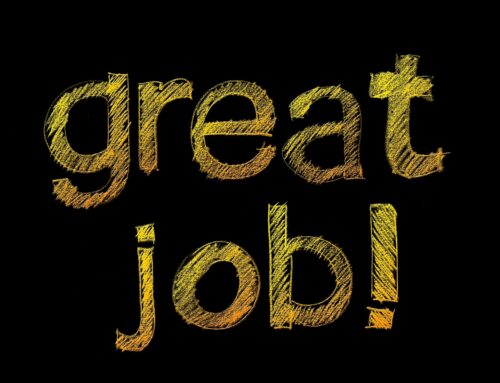“In order to practice, you must be present in your mind,” said the yoga teacher at the beginning of a recent class. So it goes with any practice whether it be law, medicine, or running a business. In order to be fully present, however, you must find a way to be calm. That’s the tricky part.
Early in my career, I went to the doctor complaining of shortness of breath, expecting him to prescribe medication. “You need to exercise three days a week,” he said. “If I write that on a prescription, will you do it?” I was experiencing anxiety and his advice helped me make the connection between self-care and professional survival. Every lawyer worries, but I was taking it to the black-belt level. My boss at the time said that he was never concerned about trial preparation “because you worry about everything.” The only problem was that I couldn’t turn it off.
Exercise certainly helped relieve some of the pressure that came with practicing law and trying cases. But, I was still extremely anxious and began to research meditation, ultimately enrolling in an eight-week mindfulness-based stress management program at the Penn Program for Mindfulness and learned, not only how to meditate, but also why it is so beneficial.
Regarding lawyers, Baime said he couldn’t think of many workplaces more stressful than a courtroom. I countered, mentioning the high stakes present in an operating room. He agreed that surgery is certainly stressful, but that everyone involved is on one side, desiring the same outcome, suggesting that the adversarial nature of legal work layers on additional anxiety where mindfulness can lend an assist.
I recently interviewed Dr. Michael Baime, the founder and director of the Penn Program for Mindfulness and clinical associate professor of medicine at the University of Pennsylvania School of Medicine. The program started in 1992 and has trained more than 16,000 people in mindfulness-based stress management. “After psychotherapists,” Baime says, “lawyers are the most well represented profession in our program.”
Baime describes the benefits of mindfulness as numerous and far-reaching: “It’s helpful that you are able to manage stress, but really what people start finding is that they find meaning and connectedness where they didn’t expect it or where they weren’t looking for it and so their life starts to support them more. It’s less adversarial. They find more beauty in their life. They find more meaning in their work. They remember that it’s a calling and that it matters and it’s not just about getting a paycheck. People change jobs because of it … and I think that’s a good decision for many of them because what’s really precious about life is that it doesn’t last. You don’t get to go back and savor what you didn’t notice. It’s just gone.”
Regarding lawyers, Baime said he couldn’t think of many workplaces more stressful than a courtroom. I countered, mentioning the high stakes present in an operating room. He agreed that surgery is certainly stressful, but that everyone involved is on one side, desiring the same outcome, suggesting that the adversarial nature of legal work layers on additional anxiety where mindfulness can lend an assist.
A crucial result of mindfulness training for me was an increased ability to stay focused in extremely charged situations. I was chief counsel for the Office of Open Records, a new commonwealth agency under tremendous public, media and judicial scrutiny. We were setting precedent in our decisions, granting release of scores of government records, and defending these decisions in the appellate courts. Public officials are wary of governmental transparency and some of the judges deciding our cases were no exception. Our interpretations of the law were under attack and I became a go-to lawyer for oral arguments because of my ability to stay cool while seven judges pounded me with questions, both reality-based and wildly hypothetical.
Baime describes the benefits of mindfulness as numerous and far-reaching: “It’s helpful that you are able to manage stress, but really what people start finding is that they find meaning and connectedness where they didn’t expect it…
It can be a destabilizing experience to stand before an appellate court. The justices are perched imperiously above the attorneys, and we must literally look up to them. Rules of civility run only in one direction as they may interrupt at any moment with a curt question, requiring the attorney to respectfully respond and regroup. Because I was in court so often, I saw many arguments as I waited my turn and was stunned by the lack of composure exhibited by some attorneys who appeared. But, it is hardly surprising due to how difficult it is to remain calm when faced with an aggressive imposing authority figure, wearing a black robe, looking down at you sternly and who can derail your argument at any moment.
How does mindfulness help in situations like this? Any professional situation is improved when emotional attachment is reduced. Baime’s program was influenced by the work of Jon Kabat-Zinn, founder and director of the Stress Reduction Clinic at the University of Massachusetts Medical Center. In “Full Catastrophe Living,” Kabat-Zinn writes about the difference between problem-focused coping and emotion-focused coping, requiring an ability to distinguish between a situation and your feelings about it. “If you can differentiate between these two components of your dilemma, you are more likely to chart your way through to an effective resolution of the entire situation, including your feelings. If, on the other hand, the domain of feelings and the domain of the problem itself get confused as they often do, it is very difficult to see clearly and to know how to act decisively. This confusion itself generates more pain and more suffering.”
Have you ever noticed that it is much easier to advise someone else who is experiencing a problem than to solve your own? Or why it is so difficult to represent yourself or a family member? The reason is lack of emotional attachment and, consequently, a greater ability to see the problem clearly. I sometimes ask clients “what would you suggest if a friend had the same dilemma?”
Just as exercise strengthens the body, mindfulness trains the brain to be more functional. As Baime explains: “All that meditation does, it takes a part of your mind that notices something—that is your attention—and it focuses that attention on something that’s available in your present moment of experience. So, you could use a thought that you create and you could focus on that. You could focus on a visual image, a cross, a statue, a candle flame, an icon; you could focus on a sound, a bell, chanting, prayer; you could focus on a sensation in the body, breath, or physical sensation. It doesn’t matter. What matters is that the mind that’s constantly jumping around, has a stable resting place and as we become more capable of resting the mind in that way, we change the way the attention network works, the way that it moves and our attention, that is to say our mind, becomes more stable.”
Also like exercise, learning mindfulness requires a commitment of time. Baime says, “It’s not something to take on at a time when you don’t have the resources to learn something different.” He added that this would be true of any new skill acquisition. “I would say that you should start with what you can do … maybe find a way to start small, do it by yourself, get somebody to coach you, which is a successful way for executives to do this. We do some executive coaching. We are trying to support people who don’t have time in their practice.”
With respect to learning curves, I was working for a law firm back when computerized legal research first became available. When it arrived, there were some who did not want to take the time to learn how to use it, despite its considerable capacity to increase productivity. It is obvious now that taking that time would have been worthwhile.
So is learning mindfulness.
Reprinted with permission from the June 29, 2016 edition of “The Legal Intelligencer” © 2016 ALM Media Properties, LLC. All rights reserved. Further duplication without permission is prohibited. For information, contact 877-257-3382, reprints@alm.com or visit www.almreprints.com.





